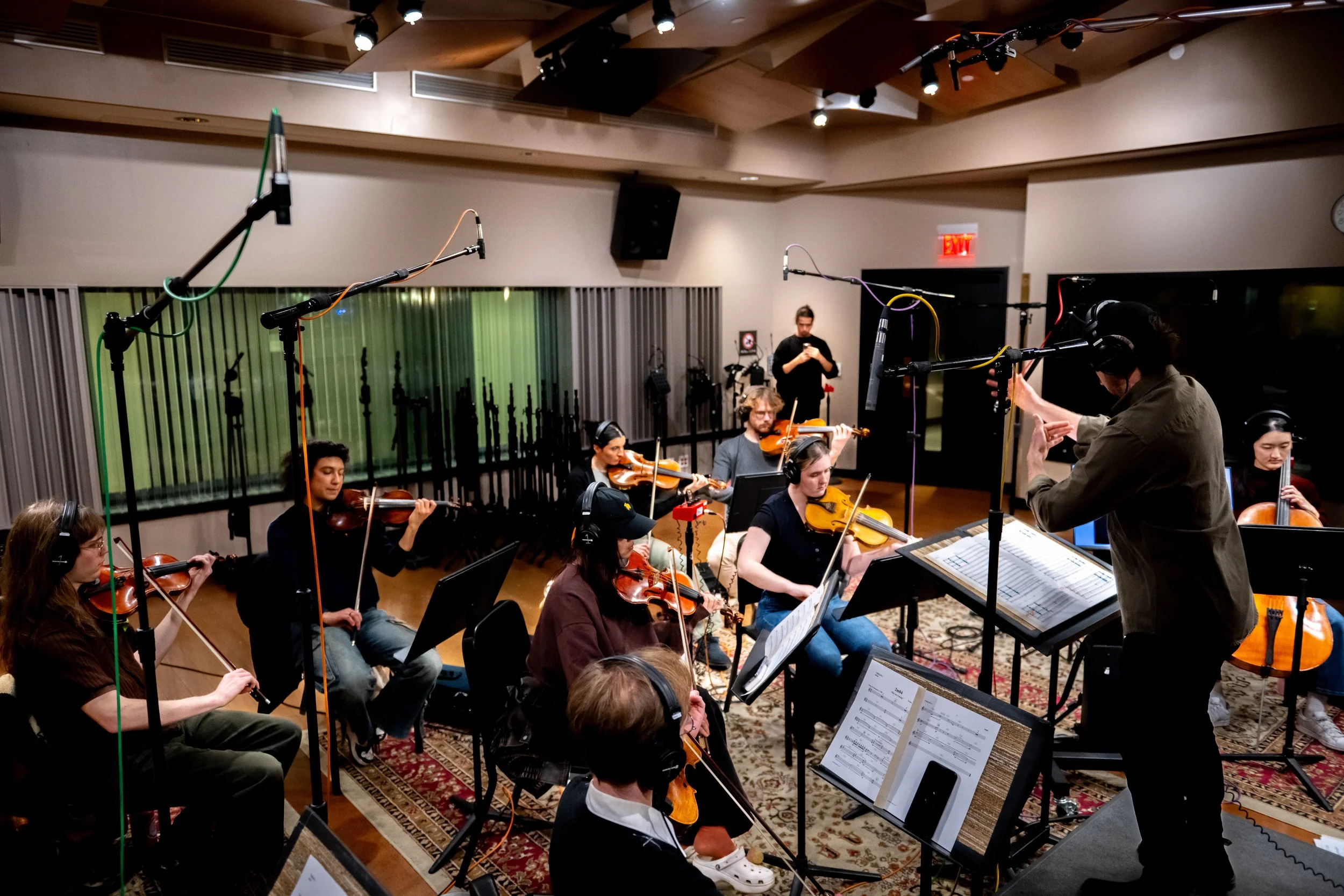
Nicolás Urricelqui is an award-winning composer from Buenos Aires, Argentina, known for his forward-thinking approach that blends electronic soundscapes and cutting-edge design with cinematic orchestral writing. As he completes his studies at the esteemed Berklee College of Music, he is on track to graduate summa cum laude. In 2025, Nicolás received the Georges Delerue Memorial Scholarship, the Screen Scoring Department’s highest honor at Berklee. This award recognizes senior students of exceptional talent whose work reflects the passion and warmth of the Oscar-winning composer’s legacy, and signals strong potential for a career in film and media composition.
Nicolás’s musical journey began with a deep curiosity for the electronic music scene at a young age, and he has been composing ever since. At the same time, he trained in classical piano under Argentine pianist Daniel Elia, a disciple of the renowned Vincenzo Scaramuzza. As an electronic music producer, he explored various genres before gradually shaping a sound that merges cinematic storytelling with modern production. In 2019, he launched his artistic project MUNSE, working with international labels to conceptualize, produce, and release several EPs. The project gained support from top artists in the scene, including Anyma (Tale Of Us), and his music has reached venues all around the world.
At the heart of all his creative work lies a deep connection to visual storytelling. His passion for film and games led him naturally toward composing for media. In 2022, he released Lament of a Goddess, one of his earliest works incorporating orchestral textures, featuring the orchestral piece “Zelena” as its closing track. That same year, Nicolás began formal studies at Berklee College of Music, majoring in Film and Interactive Media Scoring. There, he collaborated with top-tier musicians and instrumentalists to bring his compositions to life. With a strong focus on orchestration, he was selected for Berklee’s Advanced Orchestration class, which admits only 6 students out of 300 each year.


